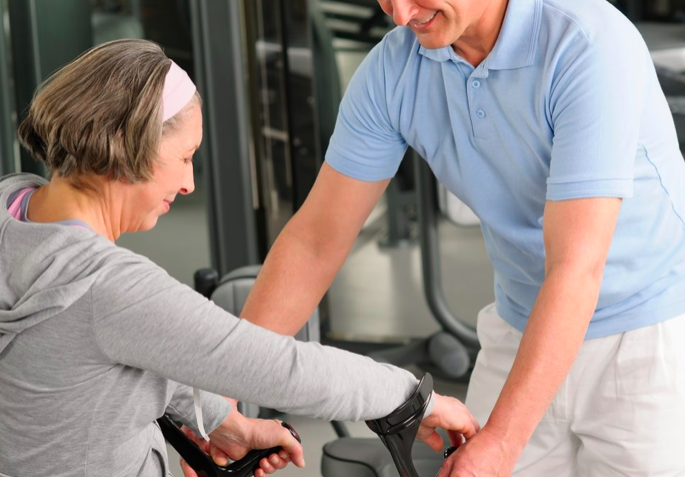Falls are a growing problem. Oftentimes a fall causes functional impairments, increased pain, decreased activity, and reduced quality of life. Reports show that falls are the most common cause of traumatic brain injuries (TBIs), accounting for more than 49% of TBIs among children, and 81% among adults aged over 64 years. Falls also contribute to about 31% of all spinal cord related injuries and are the leading cause of injury-related emergency department visits for older adults.
Considering that around 50% of older adults do not resume independent living after sustaining an injury in a fall, it is crucial to seek post-acute rehabilitation after a fall occurs. We never plan for falls to happen and even more so we cannot predict their severity. Therefore, at Neulife Rehabilitation we believe prevention is key, and today we will talk more about just that!
According to the American Physical Therapy Association, a fall is an unexpected event in which the person comes to contact with the ground, floor or lower level. It is also important to clarify that a fall was not the result of someone’s purposeful action like a push, or of a medical event, such as a heart attack.
The first step in successful prevention is to understand what makes you more likely to sustain a fall. Research shows that the cumulative effect of multiple interacting factors increases the risk of a fall. Therefore, our post-acute rehab specialists have compiled a list of fall risk factors for you to look out for.

If any of the above are relevant to you and you have not yet consulted a doctor about them, do so immediately!
A physical therapist (PT) can conduct assessments to determine your level of fall risk and identify limitations. PTs can develop a personalized program that is comprehensive to improve strength, balance, endurance, speed, reactions/coordination, and confidence with movement while performing daily activities. If you would like to learn more about how a PT can help you improve your quality of life, do not hesitate to contact us.
NeuLife Rehabilitation is one of the LARGEST residential post-acute rehabilitation facilities in the Southeast with specialized rehabilitation programs for a wide range of catastrophic injuries. We are accredited by the Commission on Accreditation of Rehabilitation Facilities (CARF) in Brain Injury Specialty Programs and Residential Rehabilitation.
Our skilled clinical experts work with each patient individually to create a customized rehabilitation program best suited to the patient’s needs. Every day we work with the goal of providing our patients with the highest quality of care. We believe that healing, wellness, and personal fulfillment are best accomplished in a positive and uplifting therapeutic environment where staff encourage, assist, and support all of their patients. And that is what we do!
To learn more about our facility, our staff and our work contact us, or schedule a tour! You can call us at 800-626-3876, or send us an email on info@neuliferehab.com. Find us at 2725 Robie Avenue, Mount Dora, Florida 32757.
The material contained on this site is for informational purposes only and DOES NOT CONSTITUTE THE PROVIDING OF MEDICAL ADVICE, and is not intended to be a substitute for independent professional medical judgment, advice, diagnosis, or treatment. Always seek the advice of your physician or other qualified healthcare providers with any questions or concerns you may have regarding your health.

We know that choosing the next step in your recovery from a catastrophic illness or injury is complex. Together, we can help you take the next step.
Contact us with any questions today.